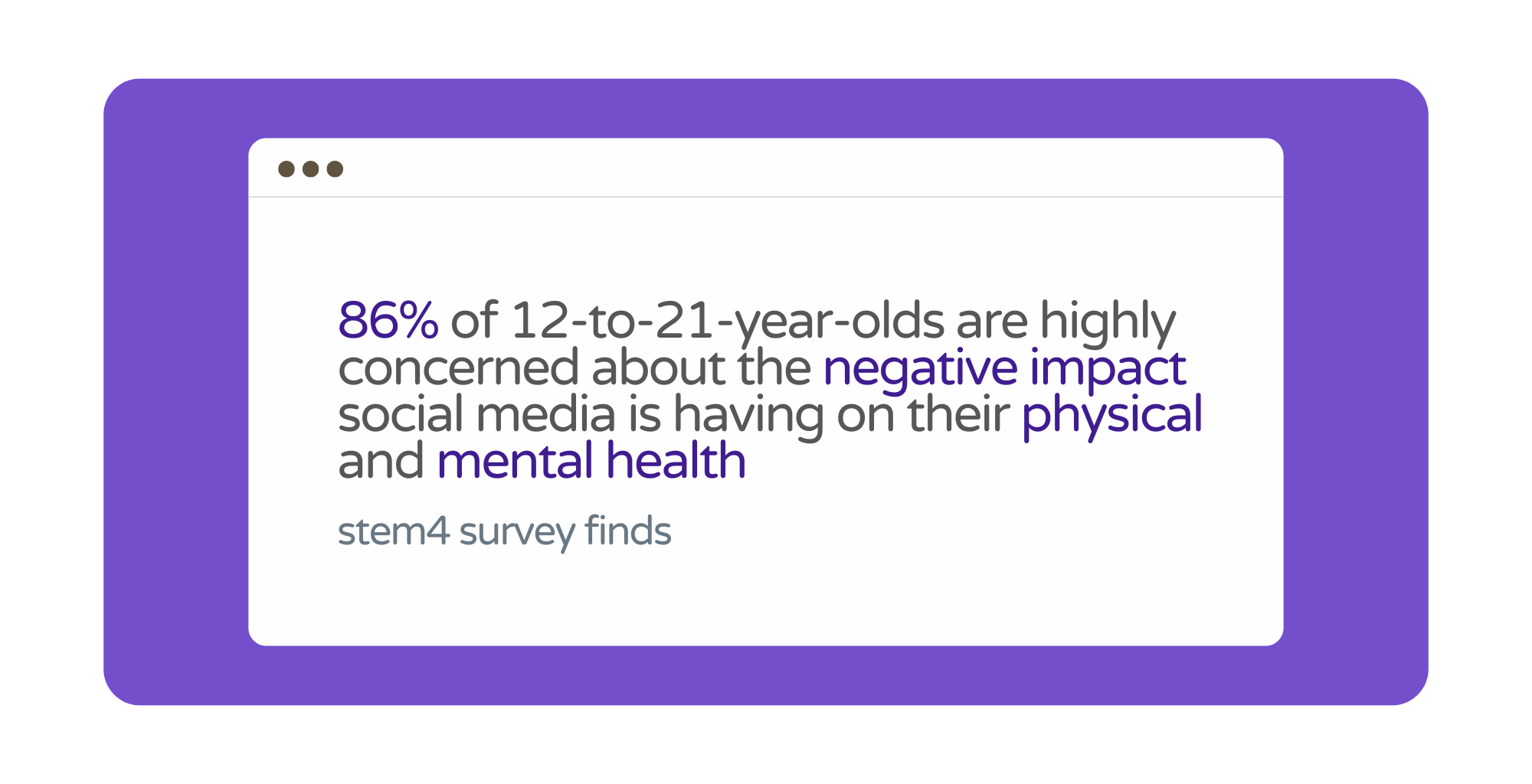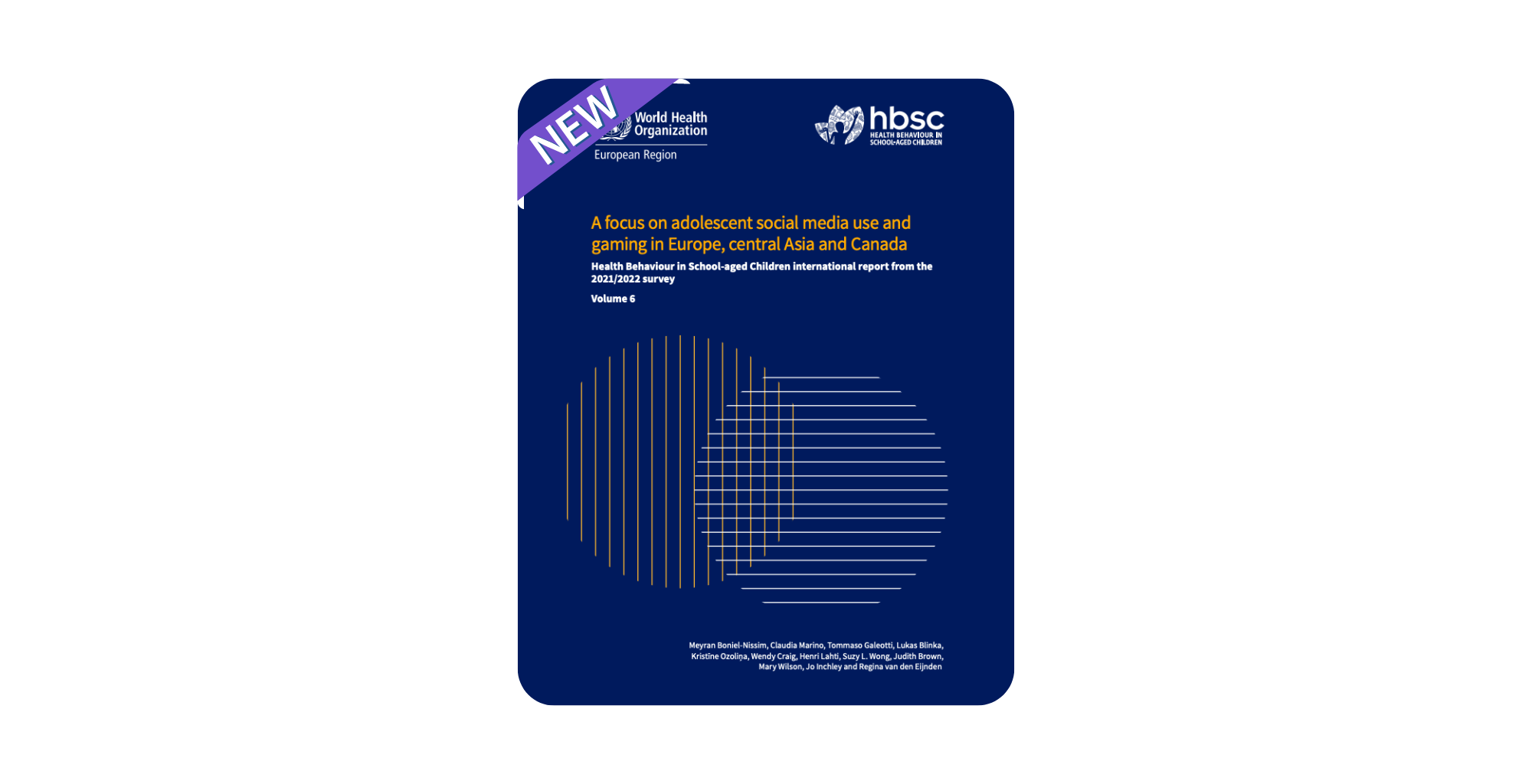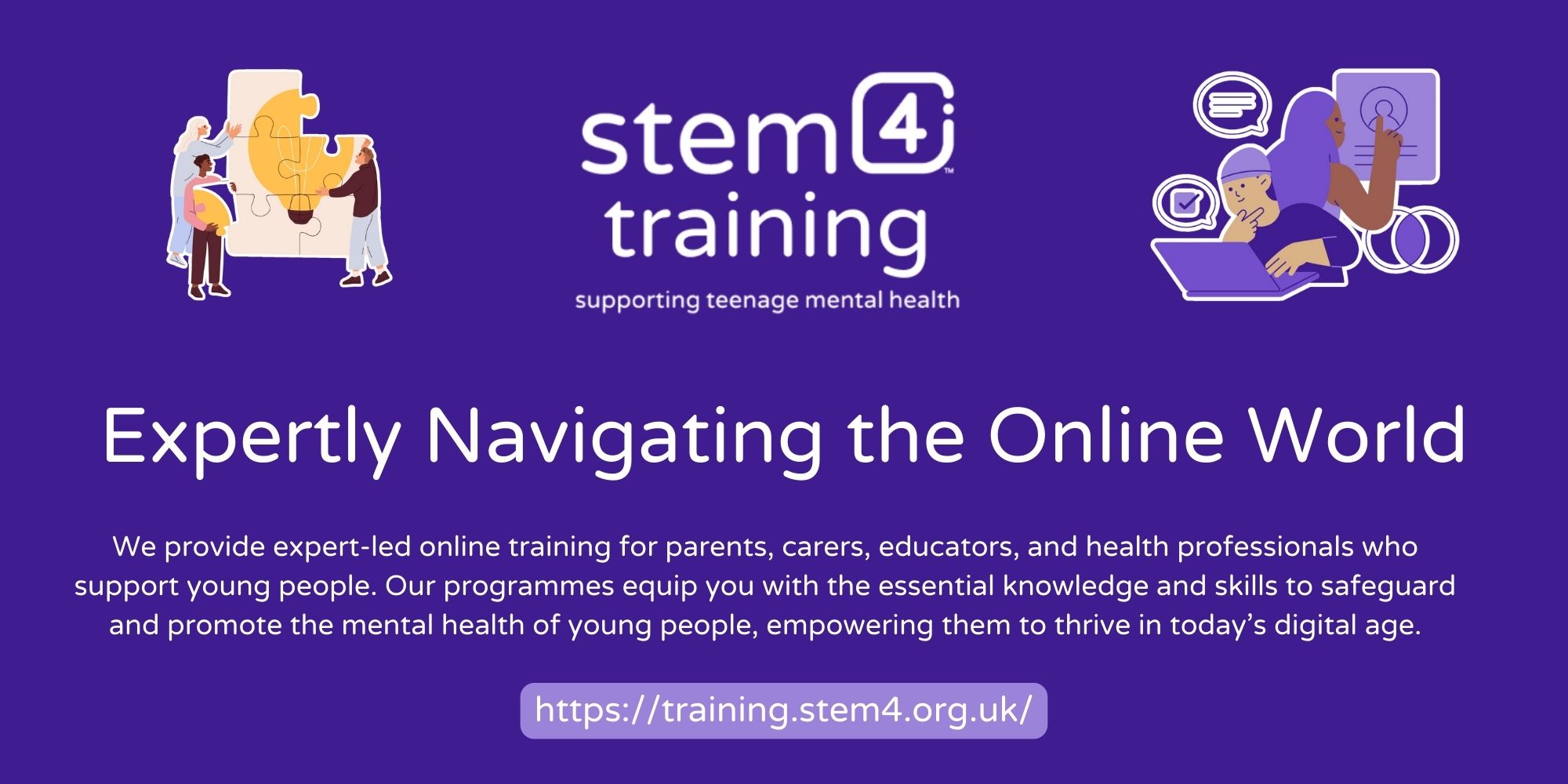
The Health Behaviour in School-aged Children (HBSC) study* found a significant increase in the number of young people engaging with social media in a problematic way, rising from 7% in 2018 to 11% in 2022, and with girls reporting higher levels of problematic use than boys (13% vs 9%). This research, which surveyed 280,000 children aged 11, 13, and 15 across 44 countries, chimes with stem4’s own survey, which found that many young people are being put at risk by social media apps, whose persuasive design is exposing them to dangerous content and activity.
Half of young people can’t quit their social media habit, even if it causes harm
A survey conducted by stem4** of 1,025 children and young people in the UK revealed that social media poses substantial risks to their well-being. Persuasive design features of these apps often expose them to harmful content and activities, making it difficult for children and young people to disengage even when they recognise the risks.
Key Findings:
- A significant 86% of 12-to-21-year-olds are highly concerned about the negative impact social media is having on their physical and mental health.
- Many young people (59%) believe that social media platforms are not doing enough to curb the spread of harmful content such as disinformation, misinformation, and fake news. Concerns also include scams and fraud (58%), online bullying (52%), inappropriate sexual content (40%), and trolling (32%).
- Despite these dangers, 41% of young people admit they are unable to break free from social media’s persuasive grip, even when aware of the potential harm. This figure rises to 45% among those aged 12 to 14.
The survey was commissioned to coincide with a major new initiative being launched by stem4, which aims to highlight the hidden and overt harms of social media, while providing tools to young people to help them manage their digital consumption.
Young People Demand Better Protection from Social Media Harms
Social media plays a vital role in young people’s social lives, yet instead of banning its use, young people are advocating for safer technology that allows them to connect without being exposed to harm.
Dr. Nihara Krause MBE, Consultant Clinical Psychologist, Founder and CEO of stem4, commented:
“Young people need to develop digital skills, and be more digitally literate to spot disinformation and know how to get help, and stay safe. This is what stem4 is striving for.”
What Young People Are Calling For:
- Age-appropriate protections’ for under 16s, with ID verification checks, or age gating limits on what under 16s can search for and interact with.
- Ban on AI Deep fakes created to cause harm, and clear labelling on AI generated/edited content.
- Introduction of digital stickers when stories are fact checked to limit fake news.
- Reduced profiling of young people and more balanced algorithms, only pushing genuine fact checked, non-AI generated content.
- Simple to use safety settings, allowing users to exclude triggering content, AI generated content, advertiser endorsed content, switch off algorithms, and report trolls, scammers and spreaders of fake news.
- Default safety settings, which don’t require high level digital skills to protect young people from harm.
- Ban on profiling of young people, and using their personal data, as in Standard 12 of the Age-Appropriate Design Code. Algorithms should not push extreme and harmful content, even if trending to a young audience.
- Use AI for good. Scanning and banning of scammers, bullies and fake news.
- Enforcement action and fines for social media networks who fail to implement restrictions.
Adults’ Role in Helping Young People Navigate the Digital World
While young people are advocating for safer social media, they cannot be expected to protect their mental health alone. It’s essential for parents and carers to step in, both by monitoring their child’s social media use and by understanding the risks their children face online.
Many young people surveyed expressed a desire for their parents and carers to become more involved in their digital lives:
“Parents need to get better at monitoring their kids’ social media, and get parental access for younger users.”
“Parents need to understand that if their socials are full of adult content, then so are their kids’. What they see is what young people see.”
“I think every app that a child is using should be monitored by a parent.”
“Parents should know what is and isn’t safe online for their child. At the moment, most don’t.”
This highlights a gap in digital literacy, where many parents aren’t fully aware of the dangers their children are exposed to on social media platforms. As one young respondent put it, “Parents need to know a lot more about social media, and they need to be not so quick to give kids and young people gadgets.”
Dr. Richard Graham, Consultant Child Psychiatrist and stem4 Clinical Director, highlighted the importance of adult intervention.
“What adults often struggle to see is that many young people do want to be able to have time away from their devices. But the many techniques of persuasive design keep them on-screen, potentially exposed to extreme and toxic content, pushed by merciless algorithms, that they can’t catch a break from. We want to give young people more skills, to manage what they see, whilst also demanding that the companies design their products to support better mental health, to help young people disengage in support of healthy development. The current situation exploits their positive desires to connect in a manner that is almost cruel.”
stem4 the UK’s leading digital mental health charity for young people, stresses the importance of a holistic approach in promoting positive mental health. They aim to empower professionals and parents and carers to support young people in the digital age.
To assist parents and carers in adapting their skills to the digital world, stem4 will host a ‘Demystifying Parenting in an Online World’ talk on Thursday, 26 September 2024, at Emanuel School, London.
stem4 has also launched an online training portal to offer resources for parents, carers, and professionals, emphasising the need for early intervention and open conversations about the potential harms of social media.
References:


